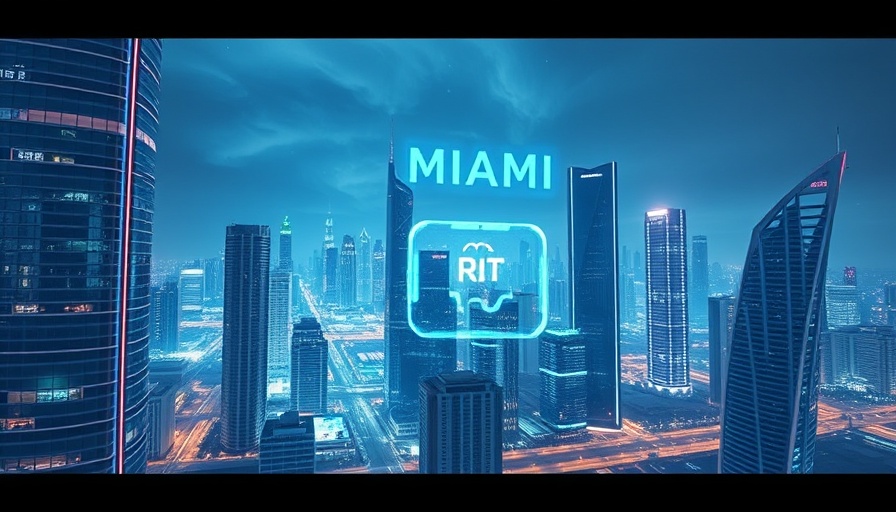
Unlocking the Future: AI in Urban Planning
In a groundbreaking initiative, Google has teamed up with Miami to implement an AI-powered experiment that automates zoning letters, aiming to revolutionize urban planning and streamline processes that have long been bogged down by inefficiency.
The Value of Automating Zoning Letters
Every city grapples with the complexities of zoning, a process that often involves cumbersome paperwork and extensive waiting periods. With the integration of AI, Miami could potentially reduce the time it takes to draft zoning letters from weeks to mere hours, allowing for more agile responses to development proposals. This shift not only saves time but also enhances transparency in urban planning.
A Peek into the Technology Behind
The automatic zoning letter system employs machine learning algorithms that analyze existing zoning codes, previous applications, and municipal guidelines. By understanding these parameters, the AI can generate accurate zoning letters tailored to specific projects. This technology not only accelerates the process but also minimizes the risk of human error, which often leads to delays and confusion in city planning.
What Does This Mean for Miami’s Growth?
As Miami continues to grow, the demand for rapid urban development increases. The introduction of AI in zoning procedures might just be the catalyst needed to attract new businesses and developments to the area. Faster approvals could lead to a more dynamic real estate market, ultimately benefiting the local economy and enhancing the city's infrastructure.
Responses from Local Leaders and Residents
While excitement surrounds the initiative, not everyone is convinced. Some residents express concerns over potential overdevelopment and the loss of community character. Local leaders, including city planners, are committed to ensuring that this technological advancement does not sacrifice the community's voice in urban development decisions, tackling the challenge of balancing progress with preservation.
Future Predictions: A Model for Other Cities?
Miami’s experiment could serve as a model for urban planning across the nation. Other cities facing bureaucratic challenges in zoning could benefit from similar technologies, ultimately leading to more efficient and transparent governance. As cities become more complex, embracing AI solutions could be key to navigating their growth.
Being Informed: Why This Matters to You
For residents and investors alike, understanding these developments is crucial. With AI-driven urban planning set to reshape Miami's skyline and culture, keeping informed allows you to engage meaningfully with local policies and development opportunities. It’s essential to stay aware of how such innovations might impact property values and community spaces.
Conclusion: An Invitation for Engagement
The integration of AI in Miami’s zoning processes is not just a tech upgrade; it’s an invitation for greater civic engagement. As the city moves forward with this initiative, residents are encouraged to voice their opinions on development—ensuring that Miami not only advances through technology but does so while upholding the essence of its community.
 Add Row
Add Row  Add
Add 




 Add Row
Add Row  Add
Add 

Write A Comment